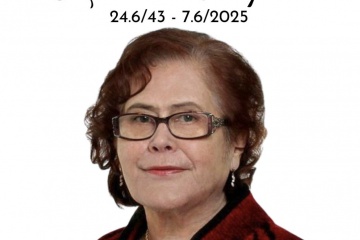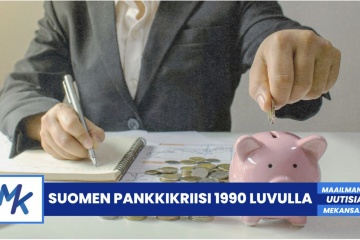Debtors’ Support Association
Pohjolankatu 27,
96100 Rovaniemi
FINLAND
www.velallistentuki.fi
liisa.mariapori@velallistentuki.fi
COUNCIL OF EUROPE
Rue de la Loi/Wetstraat 175
B-1048 Brussels
BELGIUM
Reference: Treaty on the Functioning of the European Union (TFEU) and its compliance in Finland.
Subject: URGENT ACTION REQUEST
Lataa tästä suomennettu versio
Finland holds currently the EU Presidency, but is, nevertheless, guilty of a flagrant violation of the EU’s rule of law, a situation which has lasted almost 25 years without any intervention by the Council of Europe.
The rule of law applies to institutions, the judiciary, universities, scientific research, the freedom of expression of citizens and the media (freedom of the press means freedom of the media from censorship and pressure from the State and the authorities), safeguarding the position of the opposition and respecting human dignity.
None of these principles are realized in Finland, even though the EU has provisions on corruption, penalties and recovery of wrongly spent funds. The articles are found in the Treaty on the Functioning of the European Union, and the sanctions come through a normal infringement process, but first these violations must be brought to the attention of the Council of Europe.
Finland is flagrantly violating almost all the provisions of the TFEU; the human rights referred to in the EIS, in particular the principle of equality and the protection of property.
There is no Constitutional Court in Finland, but the same parliamentarians who are legislating are also investigating the constitutional nature of the laws, and when the parliamentarians themselves are allowed to decide whether the laws passed are in conflict with the provisions of the Constitution, the contradiction is not detected or it is deliberately ignored. In Finland, therefore, human rights are not realized, as the people have only obligations but no rights at all.
- Finland is not a state built on the principle of the rule of law anymore. On the 6th of May, 1992, President Mauno Koivisto ordered that institutions should not lose out in our judicial systems; consequently, Finns have not received justice in different courts since that date. Thus, legal and political corruption has increased in Finland, and though Finland’s own politicians, including the Prime Minister, are well aware of these issues, they do not agree to restore the principle of law by repealing President Mauno Koivisto’s order and by moving to the Montesquieu tripartite doctrine and its supervision, which is essential because the supervision of legality does not work in Finland.
- On the 22nd of October, 1993, the Government and the banks concluded a mutual agreement with each other (SSP bank agreement) under which banks were unilaterally able to terminate the loans of 65 000 entrepreneurs and thus bankrupt the companies. This accounted for approximately 23 % of Finland’s total corporate population, with the result of 500 000 unemployed, of which around 300,000 are still out of work. Entrepreneurs’ assets were sold under the price through an expropriation auction, and very often purchased by banks which, after the expropriation, sold the assets with a high profit. 65 000 entrepreneurs and their guarantors were left with debts, which are still partly collected. The dishonesty of the creditor was removed from the legislation and the debtors were illegally made debtors for eternity.
- Contrary to the agreed pension agreements for wage earners, the Government of Prime Minister Paavo Lipponen ordered in 1995 that pensions be tied to a cut index instead of an index of wages, and the Government of Prime Minister Juha Sipilä ordered on the 1st of January, 2017 that no index adjustments would be made to pensions. As a result, the monetary value of pensions has decreased by around 50 % since 1995 and will continue to decrease. About 500 000 pensioners are therefore living in a poverty trap and have no longer enough money for normal food, to cover housing expenses or medicines. Pensioners die because of lack of treatment, with no chance of buying the too expensive medicines. Having paid their pensions in the past, they should receive 60 % of their wages after retiring. The pensions are agreed to be linked to the pay index, which means that they should rise the same percentage per year as wage.
- The Social security, protection against unemployment and basic social security are on too low level in Finland. The Finnish population is about 5,5 million. Addition to the pensioners there are 150 000 children living in poverty, 440 000 people are living in deep poverty and 660 000 people are living in relative poverty. There are 580 000 people for the recovery of a debt by an enforcement order and 400 000 people are within a special recovery of a debt by the enforcement order. Over 400 000 people are under mental medication (addiction of prozactives and opioids) in Finland. About 30 % of young persons have considered suicide seriously and 20 % of the adults. According to Mind RY association there is a connection between economic distress, depression and suicides among 30 % of the population. Those people earn less than 30 000 euro per year. European Council of Social Rights has repeatedly blamed Finland about too low of basic social security, but the State of Finland has passed the criticism and the requested improvements have been ignored.
- With the so-called Arsenal Trading Certificate, the Finnish Committee on Economic Policy decided to sell 57 000 entrepreneurs’ 77 000 debts amounting to 12 milliard euro at 5% of the nominal value of the debts, i.e. 600 million euro, without allowing debtors to repay their debts with this 5% amount. The buyers were Aktiv Hansa Oy and C & A Finland Oy. Some of these debts are still collected without making accounts and without presenting bonds. The decision of the sales made by Sauli Niinistö, Olli-Pekka Heinonen, Sinikka Mönkäre, Kalevi Hemilä, Suvi-Anne Siimes, Erkki Tuomioja, Paavo Lipponen, Eva Biaudet and Sauli Niinistö has stated in an interview with CNN on the 28th January, 2013 that “the victims of the recession were treated unfairly” and Prime Minister Juha Sipilä has apologized for the incident, but no compensation has been paid for the debtors. The assets of these 65 000 entrepreneurs were taken away and they were left with debts that the collection companies double/triple with their high increases and delays and high costs, thus imprisoning the entrepreneurs in lifelong debt imprisonment. The then Finnish Government and the banks were guilty of depriving the debtors and their guarantors of their assets in violation of the EIS’s property protection and the principle of equality.
- Since 1954, employees have been in a superior position to entrepreneurs. With the help of the reverse burden of proof, the Finnish Tax Administration annually causes the bankruptcy of some 3 000 entrepreneurs with its arbitrary tax audit reports. In total, the claim of general applicability has killed around 500 000 small enterprises in Finland, because large companies have negotiated the rate of wages which has been claimed to be binding on small enterprises as well, even though they have never been at the negotiating table. When a small entrepreneur has not been able to pay the wages agreed by large companies, the result has been bankruptcy and closure. In this situation the entrepreneurs are deprived of any security and automatically fall into a poverty trap, since they lack legal protection in Finland.
- In 2002, lawyers alone were given the right to represent a cause in district courts, the Court of Appeal and the Supreme Court, whereas in the past these cases could also be handled by laymen and other experts in the judiciary. This has led to legal costs becoming so high that hardly anyone can afford to apply for justice anymore. This has also led to corruption in our judicial systems as a whole. They do not provide justice, since the legal costs are so high that people no longer dare to bring matters to justice.
- This year, some 450 000 unilateral judgments are issued in Finland in a summoned procedure, which means that the applicant may submit a summons application electronically to the District Court, where the claim for a summons need not be accompanied by proof of receivables, a promissory note or an invoice for which the basis for the claim could be determined. The district courts make decisions without examining the existence or expiry of the debt, and unilateral judgments are immediately enforceable and may not be appealed against. In practice, therefore, the district courts are in breach of the EIS’s property protection and the principle of equality, and have operated since 1991 without any interference from the legality control or any other body. In Finland, the judiciary is thus trampling on the human rights of Finns.
With reference to all of the above, Debtors’ Support ry requests that the Council of Europe take urgent action in this matter.
We would be delighted to provide you more information when requested.
Rovaniemi on October 16th in 2019
Ms Liisa Mariapori Ms. Sari Laine
Chairman of the Board Secretary of the Board
liisa.mariapori@velallistentuki.fi


